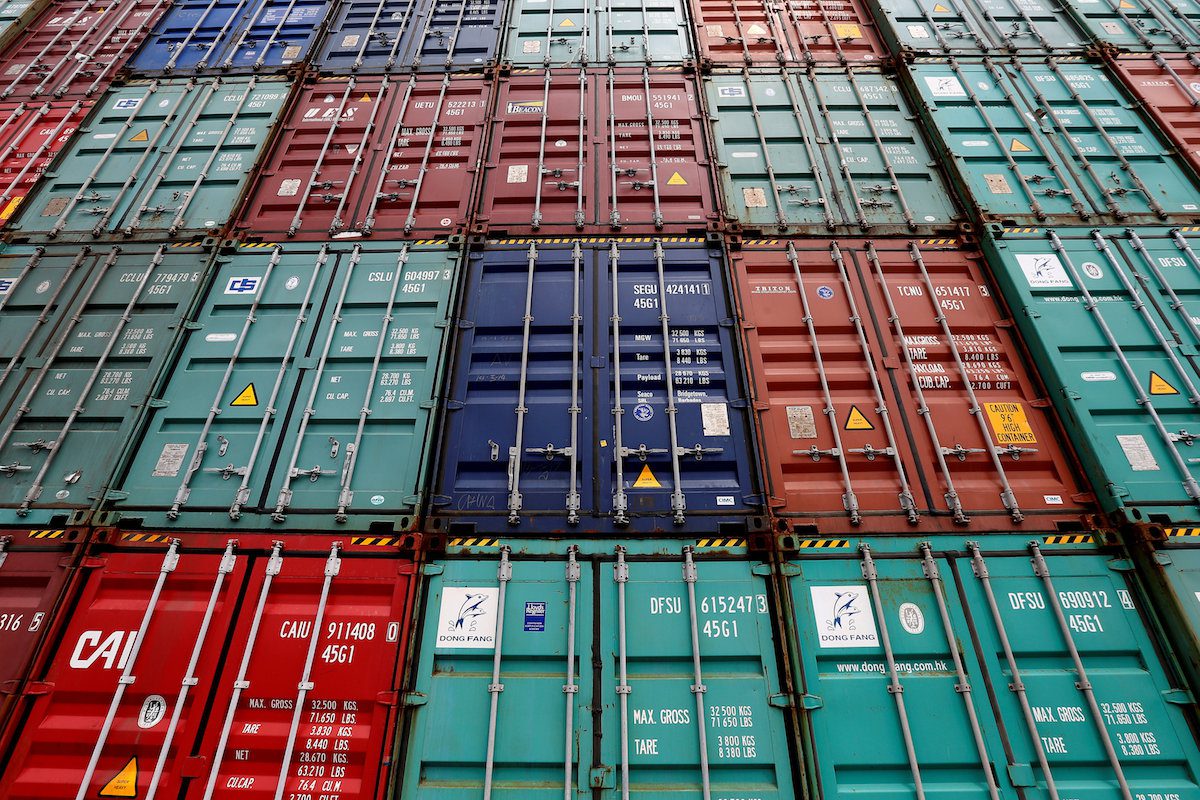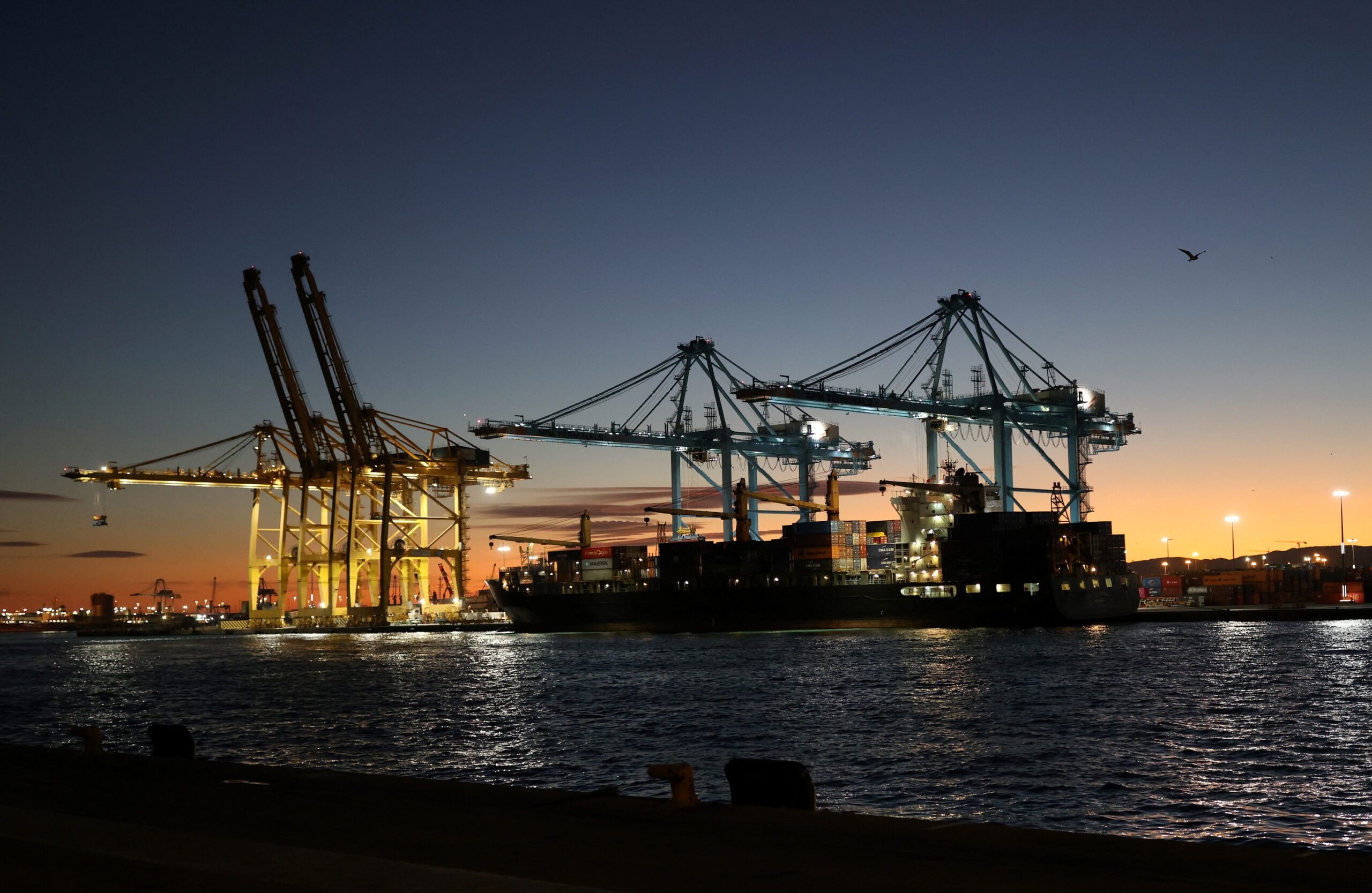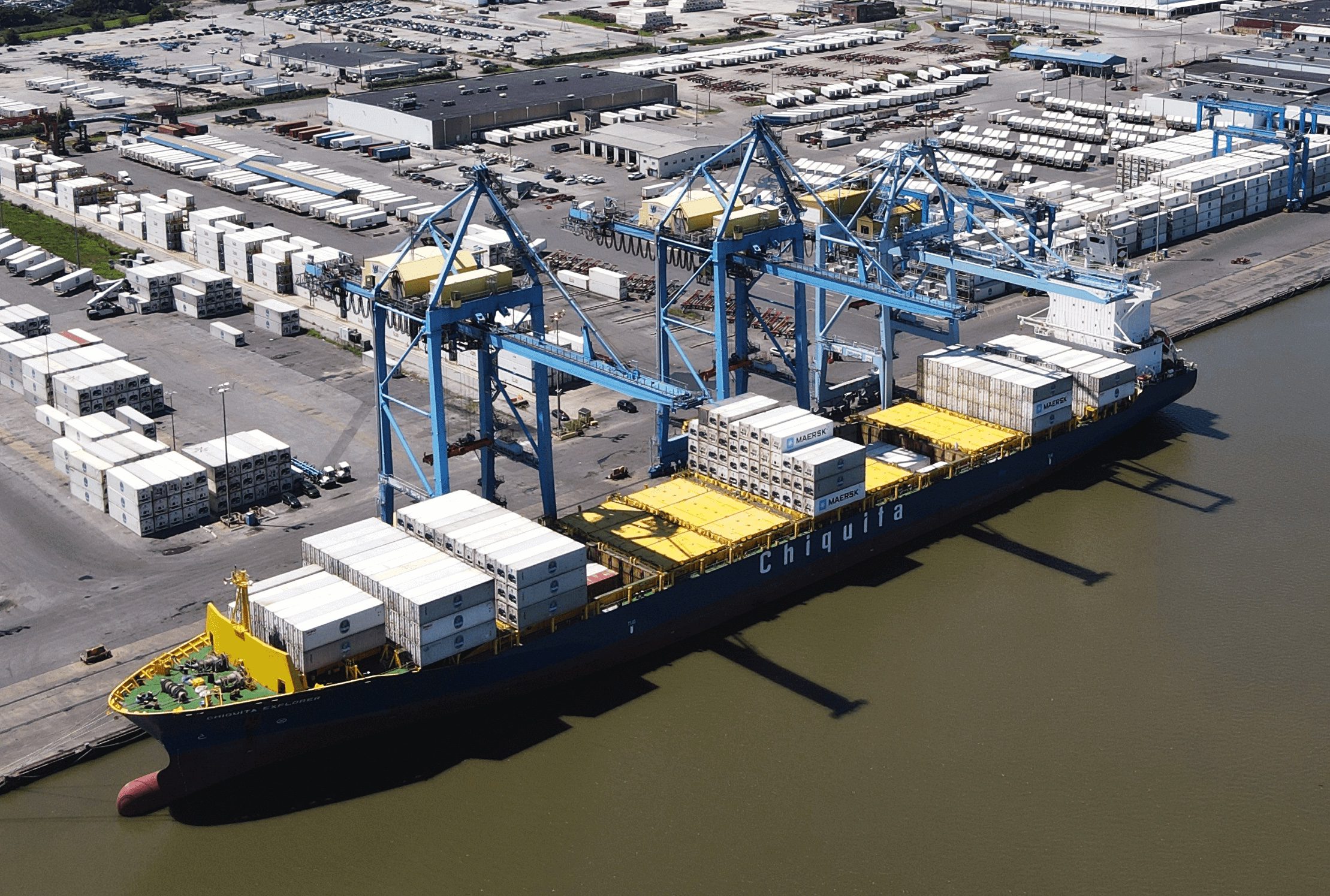FILE PHOTO: Shipping containers are stacked in the Port of Miami in Miami, Florida, U.S. on May 19, 2016. REUTERS/Carlo Allegri/File Photo

By Eveline Danubrata and Cindy Silviana JAKARTA, June 23 (Reuters) – With its towering new cranes and wharves that can handle some of the world’s biggest ships, Indonesia’s main international port has been shaking off its reputation for inefficiency and congestion with a $2.5 billion upgrade.
But the revamp is just the first step in an ambitious drive to overhaul shipping in the country, with experts warning that a scheme to dot the sprawling archipelago with a string of new harbours over the next few years could be heading for choppy waters as it still needs billions of dollars in financing.
President Joko Widodo wants Indonesia to become a “global maritime axis”, looking to slash logistics costs as the nation competes with neighbours Vietnam and Thailand to be a major regional manufacturing base for automotive and electronics companies including Toyota Motor Corp and Samsung Electronics.
“In terms of challenges, locating adequate funding is clearly one of the biggest,” said Turloch Mooney, senior editor for global ports at research provider IHS Markit.
Indonesia ranked 63rd out of 160 countries last year on the World Bank’s Logistics Performance Index, which measures the ease of trade including the timeliness of shipments, customs performance and infrastructure quality.
The costs of moving goods across one of the world’s most populous countries stood at 27 percent of gross domestic product, according to a 2013 study co-written by the World Bank. That compared with 13 percent in Malaysia and 8 percent in Singapore.
Indonesia has an ambitious plan to build or expand a total of 24 ports, though it is unclear what the overall cost would be, with the work largely divvied up between four state-controlled port operators that have their own fundraising plans.
“While (these companies) are certainly capable of developing and operating ports, in reality their capacity is limited, particularly in financing large ports,” said Raj Kannan, managing director of infrastructure consultancy Tusk Advisory.
PT Pelabuhan Indonesia II (Pelindo 2), which runs Jakarta’s revamped Tanjung Priok port, needs 40-50 trillion rupiah ($3-3.75 billion) over the next three years to build at least three new ports and other infrastructure, said President Director Elvyn G. Masassya.
Pelindo 2, which issued $1.6 billion worth of bonds two years ago, is now in talks with potential investors from China and other countries, Masassya said, adding that he was confident the company could raise enough money.
Another state-controlled port operator, PT Pelabuhan Indonesia III (Pelindo 3), is planning to raise up to 5.5 trillion rupiah from a bond issue this year.
Fitch Ratings said in April that Pelindo 3’s estimated cash flow from operations of 14 trillion rupiah over 2017-2020 would not cover forecast capital expenditure of 22 trillion rupiah.
Pelindo 3 CEO Ari Askhara this week said the spending plan was “still an estimation” and that any shortage of funds could be filled by tapping capital markets or getting bank loans.
BOTTLENECK
While the dwell time – how long it takes cargo to move through a port – has dropped to around three days at Jakarta’s port over the last few years, experts estimate that it still takes eight days or more at Indonesia’s secondary ports.
In comparison, the average dwell time at established maritime hub Singapore is only around a day.
Manufacturers have long criticised Indonesia’s shipping system, saying it slows the import of raw materials and the export of finished products.
Anne Patricia Sutanto, a senior executive at garment maker PT Pan Brothers Tbk, said there were not enough shipping lines out of Semarang, a port city on the north of Java island, which it uses for 70 percent of its exports.
Pan Brothers says on its website that its clients include Germany’s Adidas and Japan’s Uniqlo, owned by Fast Retailing.
Nevertheless, some analysts said there was room to be optimistic on the long-term prospects for the overhaul of shipping in Indonesia, with the improvements at Tanjung Priok seen as a good starting point.
“The goals are highly ambitious but also very important to the future economic fortunes of the country, and therefore have support within the highest levels of the administration,” said IHS Markit’s Mooney. ($1 = 13,320.00 rupiah)
(Reporting by Eveline Danubrata and Cindy Silviana; Additional reporting by Stefanno Reinard and Henning Gloystein; Editing by Ed Davies and Joseph Radford)
(c) Copyright Thomson Reuters 2017.

 Join The Club
Join The Club











